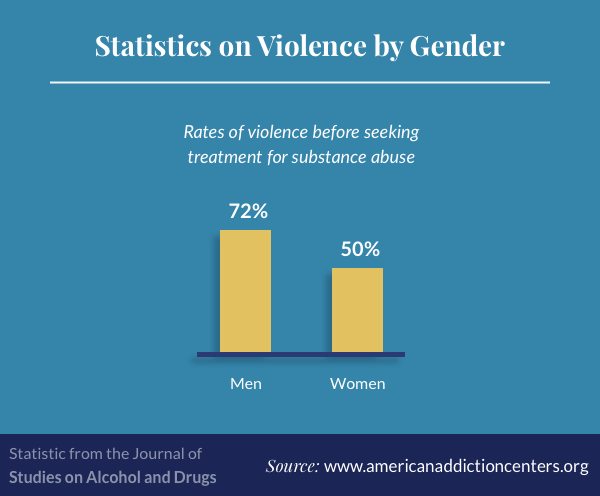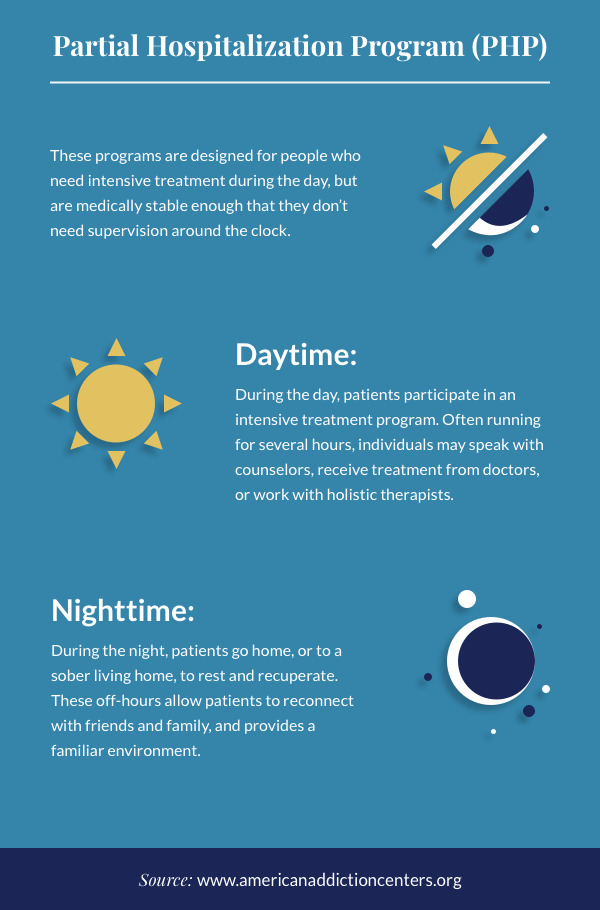Although there's no remedy for drug dependency, treatment choices described below can assist you conquer a dependency and remain drug-free. Your treatment depends on the substance abuse and any related medical or mental health disorders you might have. Long-term follow-up is essential to prevent relapse. Treatment programs normally provide: Individual, group or household therapy sessions A focus on understanding the nature of addiction, ending up being drug-free and avoiding regression Levels of care and settings that Drug Abuse Treatment vary depending upon your requirements, such as outpatient, property and inpatient programs The objective of cleansing, likewise called "detox" or withdrawal therapy, is to allow you to stop taking the addictive drug as quickly and safely as possible.
Others might require admission to a hospital or a domestic treatment center. Withdrawal from different classifications of drugs such as depressants, stimulants or opioids produces different adverse effects and needs various techniques. Detox may involve gradually lowering the dose of the drug or temporarily substituting other compounds, such as methadone, buprenorphine, or a mix of buprenorphine and naloxone.
Naloxone temporarily reverses the effects of opioid drugs. While naloxone has actually been on the market for many years, shipment systems such as Narcan (a naloxone nasal spray) and Evzio (a naloxone injection gadget) are now readily available, though they can be really expensive. Evzio is a small injection device that provides voice directions to guide the user and automatically place the needle into the thigh to deliver the naloxone injection.
As part of a drug treatment program, behavior modification a form of psychiatric therapy can be done by a psychologist or psychiatrist, or you might get therapy from a licensed alcohol and drug counselor. Treatment and counseling might be finished with an individual, a family or a group. The therapist or therapist can: Help you develop ways to manage your drug yearnings Suggest techniques to prevent drugs and avoid regression Deal recommendations on how to deal with a regression if it occurs Discuss problems concerning your task, legal problems, and relationships with household and friends Include relative to assist them develop better communication abilities and be supportive Address other mental health conditions Many, though not all, self-help support system utilize the 12-step design very first developed by Twelve step programs.
The self-help support group message is that addiction is a chronic disorder with a risk of relapse. Self-help assistance groups can decrease the sense of embarassment and seclusion that can result in regression. Your therapist or licensed therapist can help you locate a self-help support system. You may also discover support groups in your neighborhood or on the internet.

Who Has The Best Sex Addiction Treatment In The Country Mississippi Fundamentals Explained
Learning new coping skills and knowing where to discover help are essential. Taking these actions can help: Drug addiction is linked to a variety of problems that may be aided with therapy or therapy, consisting of other underlying psychological health issues or marital relationship or household issues. Seeing a psychiatrist, psychologist or certified counselor might help you regain your assurance and mend your relationships.
Seek immediate treatment from a qualified mental health professional if you have any signs or symptoms of mental illness. Support system, such as Narcotics Anonymous or Alcoholics Anonymous, can be extremely efficient in managing addiction. Compassion, understanding and shared experiences can assist you break your addiction and remain drug-free.

You can start by discussing your substance use with your primary physician, or request a referral to a specialist in drug addiction, such as a certified alcohol and drug therapist, or a psychiatrist or psychologist. Take a relative Go to the website or friend along (what different kinds of treatment exist for addiction). Here's some info to assist you get all set for your visit.
To get a precise idea of which treatment may assist, be truthful with your medical professional or other mental health professional. that you're taking, and the dosages. Tell the physician about any legal or controlled substances you're utilizing. your medical professional or mental health expert. Some questions to ask your medical professional may consist of: What's the best approach to my drug addiction? Should I see a psychiatrist or other psychological health specialist? Will I need to go to the hospital or spend time as an inpatient or outpatient at a healing clinic? What are the alternatives to the primary approach that you're suggesting? Exist any pamphlets or other printed material that I can have? What websites do you advise? Don't hesitate to ask other concerns throughout your appointment.
Be all set to answer them to reserve time to review any points you wish to concentrate on. Your medical professional may ask: What drugs do you use? When did your substance abuse first begin? How often do you utilize drugs? When you take a drug, just how much do you use? Do you ever feel that you might have a problem with drugs? Have you tried to stop by yourself? What took place when you did? If you attempted to give up, did you have withdrawal signs? Have any household members slammed your substance abuse? Are you all set to get the treatment required for your drug addiction? Oct.
The 45-Second Trick For What Credentials Should You Look For With Addiction Treatment Facility
Alcohol And Drugs Can Pirate Your BrainPeople with dependency lose control over their actions. They yearn for and seek out drugs, alcohol, or other compounds no matter what the costeven at the danger of destructive relationships, injuring family, or losing tasks. What is it about addiction that makes people behave in such harmful ways? And why is it so hard to give up? NIH-funded researchers are working to find out more about the biology of addiction.
However even for those who've successfully give up, there's constantly a threat of the dependency returning, which is called relapse. The biological basis of dependency helps to discuss why individuals need a lot more than great intents or determination to break their addictions. "A typical misperception is that addiction is a choice or moral problem, and all you need to do is stop (how to find free meth addiction treatment centers in san diego).
George Koob, director of NIH's National Institute on Alcoholic Abuse and Alcohol Addiction. "The brain actually changes with dependency, and it takes a good deal of work to get it back to its typical state. The more drugs or alcohol you've taken, the more disruptive it is to the brain." Researchers have discovered that much of dependency's power lies in its capability to hijack and even ruin key brain areas that are implied to assist us survive.
It does this by switching on brain circuits that make you feel terrific, which then inspires you to repeat those behaviors. On the other hand, when you remain in threat, a healthy brain pushes your body to react rapidly with fear or alarm, so you'll get out of damage's way. If you're tempted by something questionablelike eating ice cream https://marcocksx549.hatenablog.com/entry/2020/10/16/163114 before supper or purchasing things you can't affordthe front regions of your brain can assist you decide if the consequences deserve the actions.
Drugs or alcohol can pirate the pleasure/reward circuits in your brain and hook you into desiring more and more. Dependency can also send your emotional danger-sensing circuits into overdrive, making you feel nervous and stressed out when you're not using the drugs or alcohol. At this phase, people often use drugs or alcohol to keep from feeling bad rather than for their pleasurable impacts.